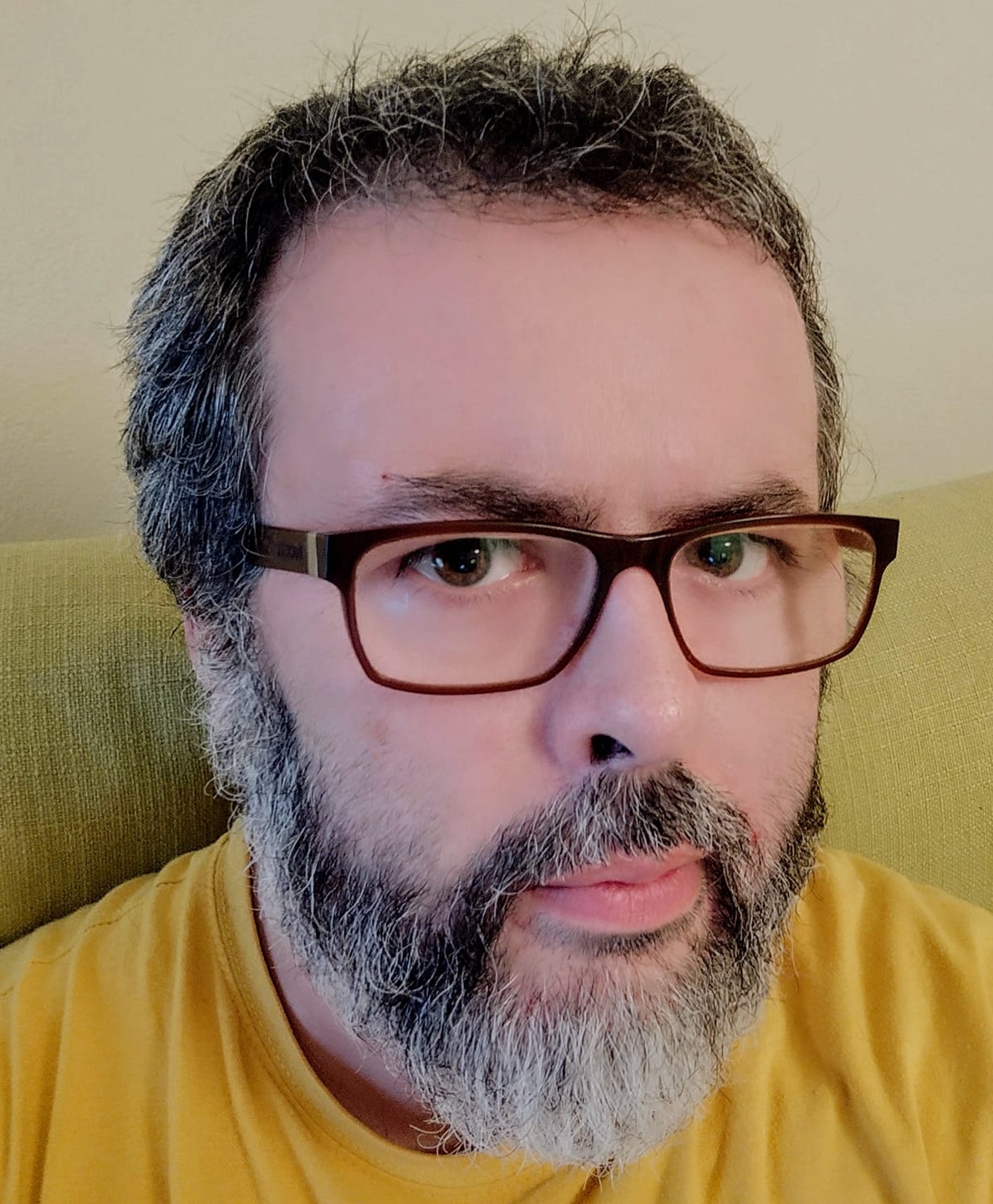 |
Marco Callieri is a Senior Researcher at the Visual Computing Lab of ISTI-CNR (institute of Science and Technologies of Information – National Research Council), in Pisa. His main research activity is focused on the use of digital technologies and in particular, 3D computer graphics, in the Cultural Heritage field. Marco Callieri is an expert in 3D scanning and digitization of real-world objects, and has coordinated and carried out various 3D scanning campaigns. Currently, he is working on the web-based visualization of 3D models and their use in the Cultural Heritage Field. He is a developer of MeshLab, and the main architect of 3DHOP. |
 |
Vittore Casarosa graduated in Electronic Engineering at the University of Pisa and spent a few years at a research center of the Italian National Research Council, doing research on “Electronic Computers” (that center is today ISTI, the Institute for Science and Technology in Informatics). He then joined IBM, spending many years in the R&D laboratories of IBM in Italy, France and in the US, doing and managing research mostly in image processing and networking. Since 2000 he is Senior Research Associate of the Italian National Research Council at ISTI, where he is associated with the activities of the Multimedia Laboratory in the field of Digital Libraries; from 2000 to 2007 he has been Deputy Director of DELOS, the Network of Excellence on Digital Libraries. Vittore has been teaching at the University of Pisa (Department of Engineering), at the University of Parma (Department of Philosophy) and at the Open University of Bolzano (department of Computer Science). Presently he is teaching a course on Digital Libraries at the University of Pisa (department of Digital Humanities). |
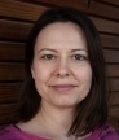 |
Francesca Frontini obtained a PhD the University of Pavia with a thesis on corpus linguistics; she was a post-doctoral researcher the Institute for Computational Linguistics in Pisa ILC-CNR), working on several European projects with a focus on computational lexicography and natural language processing. She was later associate professor at Université Paul-Valéry & CNRS in Montpellier, where she worked among other things on the MeDo project, contributing to the creation of a model for the representation and annotation of wastewater related facts and events, to be automatically extracted from texts. Today she is a Research Scientist at ILC-CNR and member of the Board of Directors of the European CLARIN ERIC infrastructure, as well as an ISO expert. Her research interests lie in Language Resources, Named Entity Recognition and textual analysis as well as linguistic knowledge representation. In addition, she has published extensively on issues relating to language resource documentation, preservation and standardisation. |
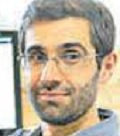 |
Tiago Gil is Associate Professor of History of the Americas in the Department of History at University of Brasilia, Brazil and coordinator of the Digital Atlas of Portuguese America. He holds a B.A. in History from Federal University of Rio Grande do Sul (2000) and M.A. (2003) and Ph.D. (2009) in Social History from the Federal University of Rio de Janeiro. He is the author of “Infiéis transgressores: elites e contrabandistas nas fronteiras do Rio Grande e do Rio Pardo, 1760-1810” (National Archive, Brazil, 2007), which won the 2005 Research Prize of the Brazilian National Archive. He also authored “Storici e informatica: l’uso dei database (1968-2013)” (in “Memoria e ricerca”), and “Taking speed seriously: motion, simultaneity, and context in map-making for historical analysis” (in “Cartography and Geographic Information Science”), among other articles, chapters and books. His research interests are HGIS, Digital History, Economic History and databases. |
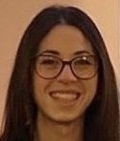 |
Elisabetta Magnanti is a University Assistant and Doctoral Candidate in the Department of History at the University of Vienna, where, as part of the Digital Humanities master’s program, she teaches courses on TEI-XML encoding and Computational Methods for Text Stemmatology. Her research specialises in early medieval England and in the application of computational methods to philological and historical analysis of Old English source material. Previously, she was Ingénieur d’études at the Department for Science and Information Technology at the CNRS in Paris. |
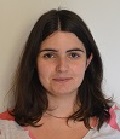 |
Chiara Mannari is a research fellow at the Wireless Networks Lab at CNR-ISTI in Pisa and a PhD student in the national PhD program in Artificial Intelligence for society. Her research interests focus on human-centered AI, requirements engineering, co-design and smart agriculture. Currently, she is taking part in HE2020 CODECS, an interdisciplinary research project to study the impact of digitization in agriculture. Her background is in digital humanities. She got a master’s degree in Digital Humanities at the University of Pisa and took part in several research projects in the field. She specializes in web platforms and tools for end-users development and periodically she gives workshops for the introduction and the use of self-publishing tools in academic context. |
 |
Monica Monachini is a Research Director at CNR-ILC and the head of LaRI, the Language Resources and Infrastructures group at ILC. She is also the national coordinator of CLARIN-IT, the Italian node of the CLARIN-ERIC European research infrastructure. Her research interests include language resources with emphasis on lexicons, ontologies, terminologies also including metadata, standards, models and formats for publishing Linguistic Linked Open data. She currently represents CNR in the UNI Terminology Committee and in the EOSC task force Community Engagement. She has participated and participates in many national and international INFRA-EOSC initiatives. She is member of the PhD Board “Technologies and the Humanities” at the University of Macerata and carries out training activities. |
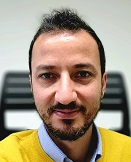 |
Marco Potenziani graduated in Computer Engineering at the University of Siena in 2013, got a Ph.D. in Computer Science at the University of Pisa in 2018. He is currently a researcher at the Visual Computing Lab (CNR-ISTI) of Pisa. Specialized in Computer Graphics, his research interests range from interactive visualization of complex 2D/3D data to web publishing of high-resolution digital content. He participated in several national and international research projects aimed at Data Publishing, Scientific Visualization, and Digital Humanities; taught a course on “3D Graphics for Cultural Heritage” at the University of Pisa; collaborates as Associate Editor with the international journal “ACM Journal on Computing and Cultural Heritage”; and participates as CNR expert in the evaluation of projects submitted to the FCS call of the Italian Ministry of Economic Development (MiSE). |
 |
Seamus Ross is Professor in the Faculty of Information at the University of Toronto and served as Dean for seven years (2009-2015). During 2015 and 2016 he served as Interim Director of the Marshall McLuhan Centre for Culture and Technology. Before joining Toronto, he was Professor of Humanities Informatics and Digital Curation and Founding Director of HATII (Humanities Advanced Technology and Information Institute) at the University of Glasgow (1997-2009). He served as Associate Director of the Digital Curation Centre in the U.K. (2004-2009) and was Principal Director of ERPANET (2001-2004) and Digital Preservation Europe (DPE) (2006-2009). He has been principal investigator in a number of international projects, such as the DELOS Digital Libraries Network of Excellence (2004-2007), Planets (2006-2010), and Digicult Forum (2002-2004). His main research interests are in the fields of Digital Preservation and Curation, Digital Humanities, digitization, digital repositories, emulation, digital archaeology, semantic extraction and genre classification, cultural heritage informatics and knowledge representation and reasoning. He is the author of a number of papers published in international journal, such as studies of “Digital Archaeology” and forensic storage formats, examination of digital preservation and archival science, and introduction to digital preservation. He also promotes broadening access to scholarship and was instrumental in the creation of the Digiman Animation Series by DigitalPreservationEurope (e.g., 2009 video Digital Preservation and Nuclear Disaster: An Animation ). Go to Web site |
 |
Roberto Rosselli Del Turco is an Associate Professor at the Università degli studi di Torino, Dipartimento di Studi Umanistici, where he teaches Germanic Philology, Old English language and literature, and Digital Philology. He has published widely in the Digital Humanities and Anglo-Saxon fields of study. He is the editor of the Digital Vercelli Book, an ongoing project that aims at providing a full edition of this important manuscript (manuscript facsimile and selected texts available at: http://www.collane.unito.it/oa/items/show/11). He is also co-director of the Visionary Cross project (http://vcg.isti.cnr.it/activities/visionarycross/), an international project aiming at producing an advanced multimedia edition of key Anglo-Saxon texts and monuments (beta version of the Ruthwell Cross: http://vcg.isti.cnr.it/cross/). He is the creator and project lead of Edition Visualization Technology (EVT), a software tool created at the University of Pisa to navigate and visualize digital editions based on the TEI XML encoding standard (http://evt.labcd.unipi.it/). |
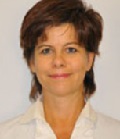 |
Enrica Salvatori is Associated Professor in the Department of Civilization and Knowledge of at the University of Pisa, where she teaches Medieval History, History of Late Ancient and Medieval Settlements and Digital Public History. Vice President of the degree course in Informatica Umanistica (Digital Humanities) at the same University from 2006 to 2010; Visiting Professor at the University P. Valéry (Montpellier, France) in 2006, 2008, 2011 and 2015; from 2015 to 2021 Director of the Laboratorio di Cultura Digitale (LabCD, Digital Culture Laboratory – http://labcd.humnet.unipi.it/) and now scientific manager of the Multimedial Service of the University of Pisa. Previously in the board of AIUCD (Italian Association of Digital Culture; 2015-2021), she is now in the board of AIPH (Italian Association of Public History 2017-..) and of PHW (Public History Weekly). Her research interests are focused on Medieval History and Digital Humanities, in mutual connection. Much of his work has been on the medieval Mediterranean circulation, the evolution of the municipality in Italy and Provence and the history of Lunigiana (northern Tuscany), as well as the study of the Digital Public History as a discipline. In particular, she has led since 2011 a research team on the history and archeology of the landscape in Val di Vara and Lunigiana (http://tramonti.labcd.unipi.it/) and since 2014 the digital edition of the Pelavicino Code (http://pelavicino.labcd.unipi.it/), structured as a Digital Public History project. |
 |
Rachele Sprugnoli Rachele Sprugnoli is researcher at the University of Parma, member of the executive committee of AIUCD (the Italian association of Digital Humanities) and publicity co-chair of AILC (the Italian association of Computational Linguistics). She obtained her bachelor’s and master’s degrees in Humanities Computing at the University of Pisa and her PhD in Information Technology at the University of Trento. She worked at Fondazione Bruno Kessler in Trento and at the Catholic University of the Sacred Heart in Milan. Her research is mainly focused on linguistic annotation, evaluation of NLP tools and on how computational methods can be applied to the treatment of cultural content. |

